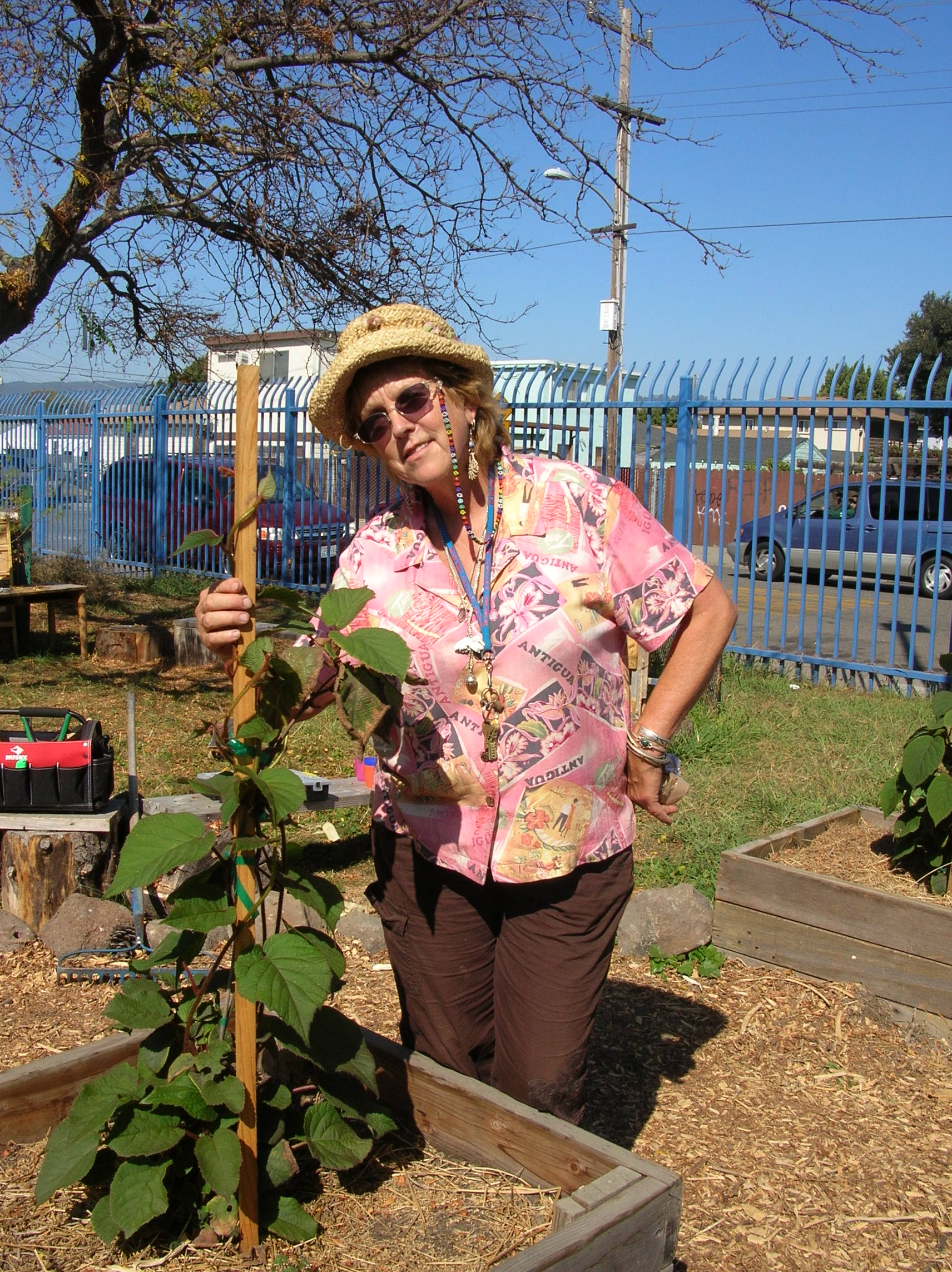
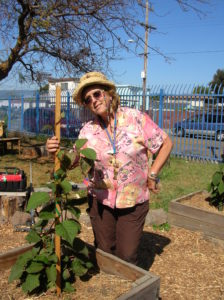
By Debora Gordon
Through the entrance to the Korematsu Discovery Academy and Esperanza Elementary School, and just off to the right, is the Stonehurst Edible Schoolyard. Suzanne Ludlum developed the project, and today she is the Garden Education Coordinator.
Suzanne describes the Edible Schoolyard as “an exciting and innovative collaboration between the City of Oakland’s Park and Recreation Department, OUSD, PUEBLO (People United for a Better Oakland), and All Ah We/All of Us,” a non-profit directed by Suzanne.
The garden, which is near 98th Ave. and San Leandro St. in East Oakland, serves as a living lab where kids and families learn how to raise fruits and vegetables, and revitalize ancestral knowledge about growing food.
The gardens provide very low-cost, organic, non-GMO food for a community that “is essentially is a food desert, in terms of affordable organics,” Suzanne says.
“There are not a lot food stores that sell organics, and I believe organics are really crucial for families because of the toxic nature of the pesticides we use to today.”

Students and young people from 18-24 years old put the garden together. Most of them are current students at local high schools.
The community advocacy group People United for a Better Oakland (PUEBLO) is also an important part in maintaining the schoolyard. “There is a lot of love in this garden,” Suzanne explains.
The entire garden is 18000 square feet, and features perennials and natives that have been mostly donated by the Merritt College Horticulture Department.
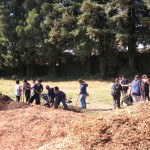
“The focus is on bringing beneficial insects to do all our pollination,” Suzanne says, “and to do integrated pest management. There are no pesticides used here at all.”
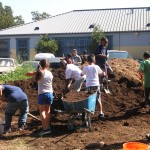
Students have planted spinach, bok choy, and arugula, as well as carrots, beets and kohlrabi.
Parents can also buy fresh vegetables, such as 1.5 lbs fresh tomatoes for a half hour of work or they can buy tomatoes for a dollar a bag from Suzanne in front of the school when it closes.
Ultimately, Suzanne hopes to raise awareness of how to grow and eat healthy foods to students, and that they will pass that awareness onto their families and communities.

Debora Gordon is a writer, artist, educator and non-violence activist. She has been living in Oakland since 1991, moving here to become a teacher in the Oakland Unified School District. In all of these roles, Debora is interested in developing a life of the mind. “As a mere human living in these simultaneously thrilling and troubled times,” Debora says, “I try to tread lightly, live thoughtfully, teach peace, and not take myself too seriously.”


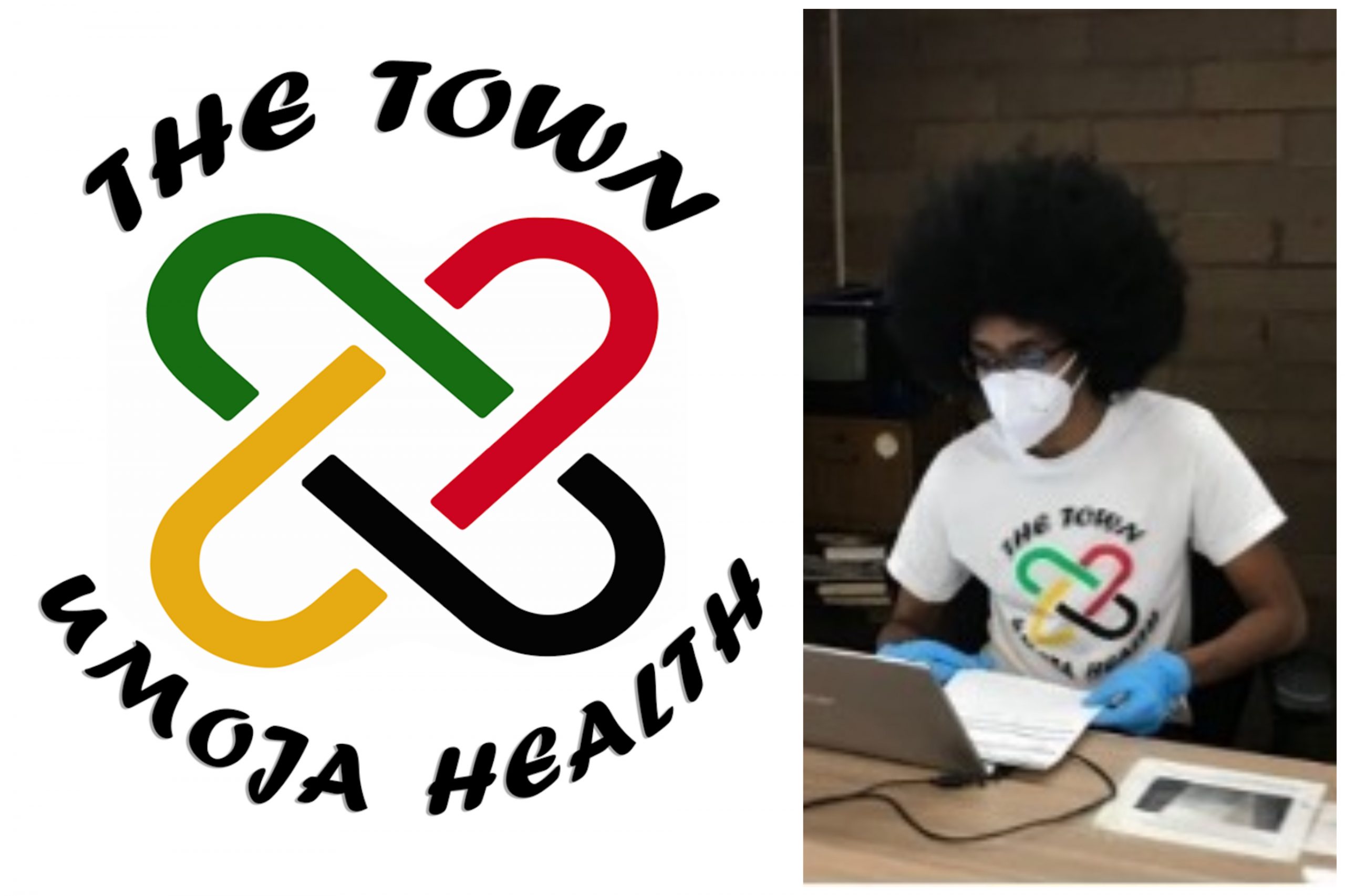

Be the first to comment